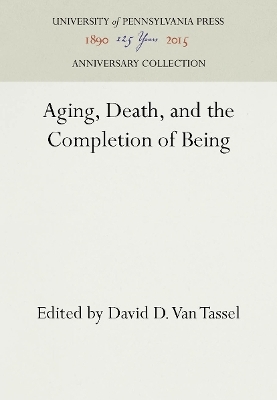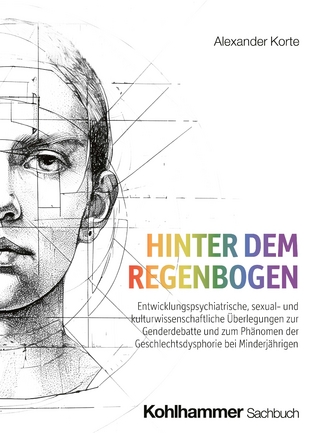
Aging, Death, and the Completion of Being
Seiten
1979
University of Pennsylvania Press (Verlag)
9780812277579 (ISBN)
University of Pennsylvania Press (Verlag)
9780812277579 (ISBN)
While the problems of aging are being studied with microscope, computer, and questionnaire as a medical, social, and economic challenge, these essays introduce the humanistic perspective. The assumption behind this work is that in history, literature, folklore, and art we have the record of centuries of human experience to enhance our present understanding of aging, old age, and death.
Growing old is a process that occurs in every person every minute, every hour that passes. But if aging does not begin on the day of retirement at the age of sixty-five, what is the definition of old age? Is it chronologically; physiologically, mentally, or culturally determined? Old age may not be a phase of life as easily identified as adolescence.
As our population continues to grow older we are ever more in need of greater sensitivity to the joys and tragedies of old age. In recent years, however, our view of old age has been clouded by our negative feelings about death. Old age has become inextricably associated with death. It was not always so: until a lower infant mortality rate, better nutrition, and a higher standard of living so greatly increased our chances of surviving into old age, death was recognized as a threat at every stage of life.
This volume brings together twelve eminent scholars from various humanistic disciplines to trace the origins of our present attitudes and to identify the models and myths of old age in our culture. The historians in the group ask how old people were treated in past societies. Literary scholars and art critics discuss the effects of aging on the later works of authors and artists and art as a source of solace, inspiration, and revelation to the aged. A philosopher explores a theme shared by all: that the way one ages and dies is a function of the way one has lived.
Contributors: John Demos, Leon Edel, Erik H. Erikson, Leslie Fiedler, Tamara K. Hareven, Robert Kastenbaum, Robert Kohn, Juanita M. Kreps, Peter Laslett, Francis V. O'Connor, Robert F. Sayre.
Growing old is a process that occurs in every person every minute, every hour that passes. But if aging does not begin on the day of retirement at the age of sixty-five, what is the definition of old age? Is it chronologically; physiologically, mentally, or culturally determined? Old age may not be a phase of life as easily identified as adolescence.
As our population continues to grow older we are ever more in need of greater sensitivity to the joys and tragedies of old age. In recent years, however, our view of old age has been clouded by our negative feelings about death. Old age has become inextricably associated with death. It was not always so: until a lower infant mortality rate, better nutrition, and a higher standard of living so greatly increased our chances of surviving into old age, death was recognized as a threat at every stage of life.
This volume brings together twelve eminent scholars from various humanistic disciplines to trace the origins of our present attitudes and to identify the models and myths of old age in our culture. The historians in the group ask how old people were treated in past societies. Literary scholars and art critics discuss the effects of aging on the later works of authors and artists and art as a source of solace, inspiration, and revelation to the aged. A philosopher explores a theme shared by all: that the way one ages and dies is a function of the way one has lived.
Contributors: John Demos, Leon Edel, Erik H. Erikson, Leslie Fiedler, Tamara K. Hareven, Robert Kastenbaum, Robert Kohn, Juanita M. Kreps, Peter Laslett, Francis V. O'Connor, Robert F. Sayre.
David D. Van Tassel was Professor Emeritus of History at Case Western Reserve University.
| Erscheint lt. Verlag | 29.8.1979 |
|---|---|
| Reihe/Serie | Anniversary Collection |
| Verlagsort | Pennsylvania |
| Sprache | englisch |
| Maße | 152 x 229 mm |
| Themenwelt | Geisteswissenschaften ► Psychologie ► Entwicklungspsychologie |
| Medizin / Pharmazie ► Medizinische Fachgebiete ► Geriatrie | |
| Sozialwissenschaften ► Soziologie | |
| ISBN-13 | 9780812277579 / 9780812277579 |
| Zustand | Neuware |
| Informationen gemäß Produktsicherheitsverordnung (GPSR) | |
| Haben Sie eine Frage zum Produkt? |
Mehr entdecken
aus dem Bereich
aus dem Bereich
Vormals Oerter & Montada
Buch | Hardcover (2018)
Julius Beltz GmbH & Co. KG (Verlag)
CHF 89,60
Buch | Softcover (2024)
Springer (Verlag)
CHF 55,95
entwicklungspsychiatrische, sexual- und kulturwissenschaftliche …
Buch | Hardcover (2024)
Kohlhammer (Verlag)
CHF 37,80


